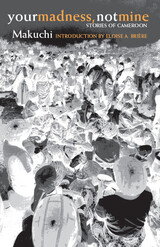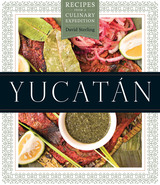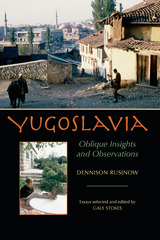10 start with Y start with Y

As Brian C. Wilson describes them in this highly readable and entertaining book, Yankees—defined by their shared culture and sense of identity—had a number of distinctive traits and sought to impose their ideas across the state of Michigan.
After the ethnic label of "Yankee" fell out of use, the offspring of Yankees appropriated the term "Midwesterner." So fused did the identities of Yankee and Midwesterner become that understanding the larger story of America's Midwestern regional identity begins with the Yankees in Michigan.

Catherine S. Barker's 1941 book Yesterday Today: Life in the Ozarks sought to illuminate another side of these “remnants of eighteenth-century life and culture”: poverty and despair. Drawing on her encounters and experiences as a federal social worker in the backwoods of the Ozarks in the 1930s, Barker described the mountaineers as “lovable and pathetic and needy and self-satisfied and valiant,” declaring that the virtuous and independent people of the hills deserved a better way and a more abundant life. Barker was also convinced that there were just as many contemptible facets of life in the Ozarks that needed to be replaced as there were virtues that needed to be preserved.
This reprinting of Yesterday Today—edited and introduced by historian J. Blake Perkins—situates this account among the Great Depression-era chronicles of the Ozarks.


Writing in his late teens and early twenties, Sāmī ‘Amr gave his diary an apt subtitle: The Battle of Life, encapsulating both the political climate of Palestine in the waning years of the British Mandate as well as the contrasting joys and troubles of family life. Now translated from the Arabic, Sāmī's diary represents a rare artifact of turbulent change in the Middle East.
Written over four years, these ruminations of a young man from Hebron brim with revelations about daily life against a backdrop of tremendous transition. Describing the public and the private, the modern and the traditional, Sāmī muses on relationships, his station in life, and other universal experiences while sharing numerous details about a pivotal moment in Palestine's modern history. Making these never-before-published reflections available in translation, Kimberly Katz also provides illuminating context for Sāmī's words, laying out biographical details of Sāmī, who kept his diary private for close to sixty years. One of a limited number of Palestinian diaries available to English-language readers, the diary of Sāmī ‘Amr bridges significant chasms in our understanding of Middle Eastern, and particularly Palestinian, history.



Winner, James Beard Foundation Best Cookbook of the Year Award, 2015
James Beard Foundation Best International Cookbook Award, 2015
The Art of Eating Prize for Best Food Book of the Year, 2015
The Yucatán Peninsula is home to one of the world's great regional cuisines. With a foundation of native Maya dishes made from fresh local ingredients, it shares much of the same pantry of ingredients and many culinary practices with the rest of Mexico. Yet, due to its isolated peninsular location, it was also in a unique position to absorb the foods and flavors of such far-flung regions as Spain and Portugal, France, Holland, Lebanon and the Levant, Cuba and the Caribbean, and Africa. In recent years, gourmet magazines and celebrity chefs have popularized certain Yucatecan dishes and ingredients, such as Sopa de lima and achiote, and global gastronomes have made the pilgrimage to Yucatán to tantalize their taste buds with smoky pit barbecues, citrus-based pickles, and fiery chiles. But until now, the full depth and richness of this cuisine has remained little understood beyond Yucatán's borders.
An internationally recognized authority on Yucatecan cuisine, chef David Sterling takes you on a gastronomic tour of the peninsula in this unique cookbook, Yucatán: Recipes from a Culinary Expedition. Presenting the food in the places where it’s savored, Sterling begins in jungle towns where Mayas concoct age-old recipes with a few simple ingredients they grow themselves. He travels over a thousand miles along the broad Yucatán coast to sample a bounty of seafood; shares “the people’s food”at bakeries, chicharronerías, street vendors, home restaurants, and cantinas; and highlights the cooking of the peninsula’s three largest cities—Campeche, Mérida, and Valladolid—as well as a variety of pueblos noted for signature dishes. Throughout the journey, Sterling serves up over 275 authentic, thoroughly tested recipes that will appeal to both novice and professional cooks. He also discusses pantry staples and basic cooking techniques and offers substitutions for local ingredients that may be hard to find elsewhere. Profusely illustrated and spiced with lively stories of the region’s people and places, Yucatán: Recipes from a Culinary Expedition is the long-awaited definitive work on this distinctive cuisine.

Rusinow's essays explore such diverse topics as the first American-style supermarket and its challenge to traditional outdoor markets; the lessons of a Serbian holiday feast (Slava); the resignation of vice president Rankovic; the Croatian Spring of 1971; ethnic divides and the rise of nationalism throughout the country; the tension between conservative and liberal forces in Yugoslav politics; and the student revolt at Belgrade University in 1968. Rusinow's final report in 1991 examines the serious challenges to the nation's future even as it collapsed.


Gerardo Reichel-Dolmatoff spent much of his life studying the oral culture of the Tukano Indians in the Northwest Amazon, including twenty years simply learning the four key Tukanoan languages. Through his translations and commentaries of the yuruparí fertility mythologem and ritual complex, Tukano oral art is revealed as an important expression of tribal philosophical and religious thought.
The four Tukano "texts" in this volume "speak of emotions, paint images, and construct sceneries." They contain coded cultural history and lead us into the meaning of oral traditions: meaning contained in admonitions, instructions, and explanations which constitute the fundamental precepts of social customs, conflict resolution, gender attitudes, and ecology. Reichel-Dolmatoff places the analytical study of South American oral art on a par with the great exegetic traditions of the Old World.
READERS
Browse our collection.
PUBLISHERS
See BiblioVault's publisher services.
STUDENT SERVICES
Files for college accessibility offices.
UChicago Accessibility Resources
home | accessibility | search | about | contact us
BiblioVault ® 2001 - 2024
The University of Chicago Press









